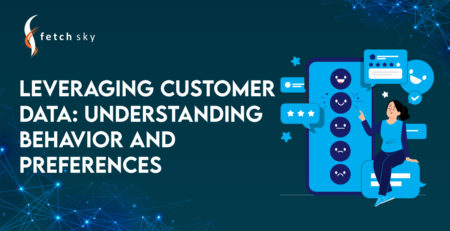Addressing Customer Concerns about Data Privacy
Introduction: Data Privacy and Customer Concerns
As a business leader, you think about how to increase revenue and grow your company. In the age of digital marketing and data collection, you also need to think about consumer privacy concerns and how they can impact your business. Companies are increasingly collecting data about their clients to improve customer service, target marketing, and track sales. However, it can be misused to invade privacy, manipulate behavior, and sell sensitive information.
~Source
In today’s digital age, data is a valuable commodity, and customers are increasingly concerned about how their personal information is collected, stored, and used by businesses. Addressing data privacy concerns is crucial for building trust and fostering a positive relationship with customers. In this blog, we will explore strategies for tackling customer concerns about data privacy in loyalty programs.
You can read our blogs to know what a Digital Loyalty Solution exactly is, its benefits, how it can boost customer retention, and how to make an attractive loyalty program. You can also find steps to integrate it into your websites and into your apps and into your business systems as well. Moreover, there’s a gaming option you can add to your loyalty program, you can find out more about that as well. For in-depth personalization details in Digital Loyalty Programs, click here. Defining Goals is another important for Loyalty Program, read more.
Transparency and Consent
Be upfront and transparent with customers about the data you collect and how it will be used. Clearly outline your data privacy policy, terms of service, and any third-party sharing practices. Obtain explicit consent from customers for data collection and processing. Make it easy for customers to access and review their data preferences.
Data Security Measures
Invest in robust data security measures to safeguard customer data from unauthorized access, breaches, or cyberattacks. Regularly update security protocols and comply with industry standards and regulations. Conduct regular security audits and penetration testing to identify and address vulnerabilities.
Anonymization and Aggregation
When possible, anonymize and aggregate customer data to protect individual identities. This approach allows businesses to analyze trends and patterns without compromising individual privacy. Limit access to personally identifiable information (PII) to only those who require it for specific purposes.
Limited Data Collection
Only collect data that is necessary for the functioning of the loyalty program and providing relevant rewards. Avoid collecting sensitive or excessive information that isn’t directly related to the program’s purpose. Implement data minimization principles and regularly review data retention practices.
Educate Customers
Create educational content that explains your data privacy practices and the steps you take to protect customer information. Address frequently asked questions about data privacy in your loyalty program. Use simple and accessible language to ensure everyone understands the policies.
Data Access and Control
Offer customers the ability to access, review, and update their personal data. Provide an easy-to-use dashboard where they can manage their preferences and privacy settings. Allow customers to easily opt out of data sharing and marketing communications.
Regular Auditing and Compliance
Conduct regular audits to ensure compliance with data protection regulations. Stay informed about evolving laws and adapt your privacy practices accordingly. Designate a data protection officer (DPO) to oversee privacy-related matters.
Data Breach Response Plan
Have a comprehensive data breach response plan in place. If a breach occurs, communicate promptly with affected customers and take necessary actions to mitigate the impact. Notify customers about the breach, the data affected, and the steps you’re taking to prevent future incidents.
Third-Party Vendors
If you share customer data with third-party vendors for loyalty program management, ensure they also adhere to strict data privacy standards. Conduct due diligence and sign data processing agreements with third-party providers.
Incentives for Data Sharing
Consider offering customers incentives, such as exclusive rewards or personalized experiences, in exchange for sharing certain data. However, ensure that this is done transparently and with clear consent. Avoid forced tactics to obtain data.
Regular Communication
Keep customers informed about updates to your data privacy policy and any changes to how their data is handled. Open communication builds trust. Use email newsletters, privacy notices on your website, and other communication channels to pass on privacy-related information.
Employee Training
Educate your employees about the importance of data privacy and the role they play in safeguarding customer information. Provide training sessions on data handling, privacy policies, and data breach protocols.
By implementing these strategies, businesses can demonstrate their commitment to data privacy and alleviate customer concerns. A strong focus on data protection not only helps in compliance with regulations but also enhances the overall reputation of the brand, leading to increased customer loyalty and satisfaction.
To get a complete guide to Digital Loyalty Solutions, Click Here.







